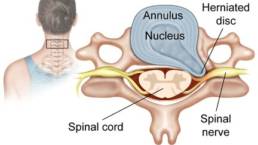What is Lymphedema?
Lymphedema refers to the impaired flow of the body’s lymphatic system. Lymph nodes are located throughout the body, and these nodes help to prevent infections and ailments. This system triggers the body’s natural healing process and flushes out toxins from the body.
What Does the Lymphatic System Normally Do?
The lymphatic system consists of lymph nodes that are responsible for removal of lymph, also termed interstitial fluid, taking it back into the bloodstream through special vessels to eventually be removed from the body during elimination processes. If this system becomes blocked, the person may begin to notice unusual swelling in their extremities near where the problematic lymph nodes are located.
What Causes Lymphedema to Occur or Are People Born with It?
There are two different types of lymphedema to consider. The first one is a condition that babies are born with, and this type is known as congenital hereditary lymphedema.
Others develop secondary lymphedema often as a negative side-effect from various surgeries including cancer removing breast surgeries that remove lymph nodes and tissue near the underarm region. This phenomenon can also occur in other surgical procedures and/or as a result from lymph tissue or node damage from traumatic injuries, medical treatments and other factors.
What Are the Treatments for Lymphedema & Is It Curable?
Lymphedema is a chronic condition and is not curable at the present time. However, there are some newer treatments for this condition that can help manage the resulting symptoms including decreasing extremity swelling, discomfort and skin related problems that often present as well.
Why Lymphatic Drainage Should Be Included In the Treatment Plan
A well-trained and qualified physiotherapist can perform effective lymphatic drainage as part of the patient’s overall treatment plan for lymphedema treatment. Our bodies rely on a properly functioning lymphatic system to rid the body of dangerous buildups of toxins normally excreted through the liver and kidneys.
When lymph nodes have been injured, damaged or removed, the patient should begin this important therapy at the first sign of lymphedema symptoms. This tactic can help prevent or lessen associated complications like a poor autoimmune response, damage to internal organs and unwanted negative changes to the skin. This drainage method helps to keep inflammation processes under control.
Who May Benefit from Lymphatic Drainage Treatment?
This treatment may help people who struggle with congestive heart failure, liver and kidney problems, migraine sufferers and complications following various surgeries. This treatment should be tailored to custom fit each different patient for best end results and better quality of life moving forward.
When lymphatic drainage is initiated early, patients may experience less adverse symptoms overall. If you have more questions about Lymphedema, please contact us.
References:
https://www.ncbi.nlm.nih.gov/pmc/articles/PMC3595870/
https://www.amjmed.com/article/S0002-9343(00)00727-0/fulltext
Related Posts
How to Treat a Herniated Disc
27 April 2018
Between each of our spinal vertebrae we have an intervertebral disc. These discs play an important role in the normal functioning of our spines. They act as shock absorbers, hold the vertebrae together and allow slight movement of the spine.
0 Comments3 Minutes


